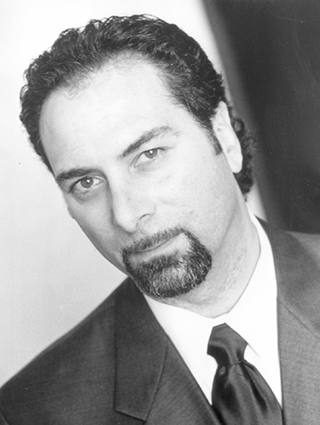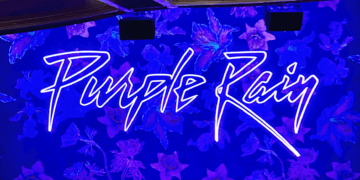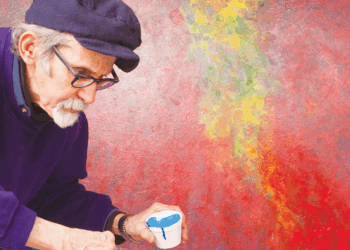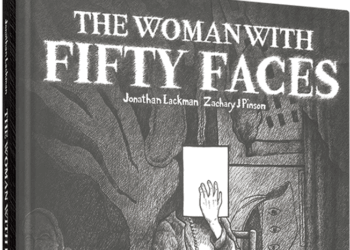By MORDECAI SPECKTOR
I’ll start with my Prince stories.
In 1983, I was writing and doing political organizing around various causes. Somehow, I got word that a ticket was available for a Prince show at First Avenue. I wasn’t the biggest Prince fan in the world, but I enjoy all kinds of music and Prince (né Prince Rogers Nelson) was an emerging star from Minneapolis.
The show was a benefit for the Minnesota Dance Theatre, so I went to the office of the troupe’s founder, Loyce Houlton, and she gave me a ticket for the Aug. 3 show, which was the debut public performance of Prince and the Revolution.
First Avenue was packed for the hometown hero’s show. I discovered that Prince was a fabulous showman: a combination of James Brown, Little Richard, Jimi Hendrix et al., in one petite package of boundless energy. The crowd that night heard the first renditions of “Purple Rain,” “I Would Die 4 U” and “Baby I’m a Star,” which would appear on the Purple Rain album and the soundtrack for the 1984 eponymous movie.
“Those versions were almost exactly what he did live,” longtime Prince producer David Rivkin told The Current radio station in 2016. Rivkin is also known as David Z, and he is the older brother of Bobby Z.
Moving forward to 1985, I was married to Maj-Britt Syse, an actor and clown with In the Heart of the Beast Puppet and Mask Theatre, the ensemble that put on the May Day parade and festival in south Minneapolis over many decades. She answered the call, along with some other Beasties, to decorate the Prom Ballroom in St. Paul for Prince’s 27th birthday party. The decorating crew got invites for the lavish costume party.
So, it was just Maj-Britt and I and 800 of Prince’s closest friends partying down at the Prom. At some point in the evening, we were dancing in our costumes — I was wearing a gigantic papier-mâché mask and silly suit. I noticed Prince dancing nearby and offered my hand: “Happy birthday, Prince!” He had a big smile on his face as he shook my hand.
Getting back to the story of the moment, Purple Rain had its world premiere on Nov. 5 at the State Theatre in downtown Minneapolis. The show runs through Nov. 23 and then moves to Broadway.
The stage adaptation of the film Purple Rain is based on the original screenplay by Albert Mangoli and William Blinn. The pre-Broadway engagement here is directed by Tony Award nominee Lileana Blain-Cruz, with a book by Tony Award winner and Pulitzer Prize winner Branden Jacobs-Jenkins. Of course, the music and lyrics are by Prince (1958-2016).

At the end of October, I had a phone interview with Bobby Z (né Robert Rivkin), drummer in Prince and the Revolution and a music adviser for Purple Rain, the stage musical; and Orin Wolf, a veteran Broadway producer who runs a large touring company and is the producer of Purple Rain.
Wolf said that he gained the rights to Purple Rain seven years ago and began assembling the creative team. He hired Jacobs-Jenkins, whose play Purpose won the 2025 Pulitzer Prize for drama, to adapt the film’s story to the stage. The show’s music supervision, arrangements and orchestrations are by Jason Michael Webb, a composer who won a 2019 Tony Award and Drama Desk Award for the show Choir Boy. Bobby Z and Morris Hayes, another Prince bandmate, worked as music advisers for the show.
Purple Rain began preview performances in October, and Wolf mentioned that the show has gone through some alterations. About one-fourth of the running time has been cut, he said.
Wolf had a great Broadway success with The Band’s Visit, the stage adaptation of the 2007 Israeli film written and directed by Eran Kolirin. The Band’s Visit premiered on Broadway late in 2017 and won 10 Tony Awards, including one for best musical.
I mentioned to Wolf that I interviewed Kolirin, when he came through Minneapolis on a press junket for his film. I also interviewed Adam Gabay, a cast member in the touring company of The Band’s Visit, ahead of its run in Minneapolis.
Wolf said that Kolirin will direct the stage version of the show when it opens in Jan. 2026 at Tel Aviv’s Shlomo Group Arena. Sasson Gabay, Adam’s father and star of the TV series Shtisel, will reprise his role in the film and Broadway production as the director of the Egyptian police orchestra that gets lost in Israel.

Getting back to Purple Rain, I recently read an interview with Jacobs-Jenkins and Blain-Cruz in Mpls. St. Paul Magazine. The acclaimed playwright mentioned, vis-à-vis adapting the film: “The tricky thing about this, is the IP [intellectual property] we’re working with is the film. So, we don’t have life rights.” In other words, the musical is not based on the life of Prince; rather, it follows the protagonist known as The Kid, played by Prince in the movie, which is loosely biographical. Wolf said that the book for the stage production follows the movie’s love triangle of The Kid, Apollonia (played by Apollonia Kotero) and Morris (Morris Day of The Time).
Bobby Z appears in the show, too, as the character Bobby, whom he describes as a “noodge.”
The film version of Purple Rain has only nine songs by Prince and The Revolution, and some songs by The Time. The musical therefore needed to be expanded, and Bobby Z said that the show’s music “sounds fantastic” and “the mixing is very intricate.” Listening to the musical score in rehearsals gave him “goosebumps.”
On the musical tip, Orin Wolf said that the stage show’s creative team leaned into ways “to push people, just as Prince was pushing the envelope” in his musical oeuvre.
The Purple Rain creative team’s “representation of the musicians and the interactions” tried to “underscore authenticity in every aspect,” according to Bobby Z. “It’s a very deep process; the theater is much deeper and much more risky than any medium I’ve seen. It’s editing a live film with real people. It’s amazing to watch Orin work.”
“Having Bobby in the room has been really like the gift,” Wolf responded. “It’s such a comfort to know that we’ve got his eyes on this and he’s so good with the creative people in the room that they just trust him, so he can get in there and give notes and everybody embraces him. He’s actually made my job much easier because I’ve been able to really lean on him and he’s been very generous with his time.”
For a long time I’ve been interested in the fact that Prince was surrounded by Jews early on in his career.
According to Bobby Z, Prince had Jewish friends while growing up in north Minneapolis, which was the landing zone for Jewish immigrants and home to the first and second generations of Jews in the previous century. The Revolution included three Jews: Bobby Z, Matt (“Dr.”) Fink and Wendy Melvoin (who has said that she’s “half-Jewish”).
And Jews aided the rise of Prince. Bobby Z was working for Owen Husney, the music maven from St. Louis Park, when he first encountered teenage Prince at the south Minneapolis studio owned by Chris Moon. Bobby Z, who was playing drums on sessions at the studio, told Husney, “You have to see this kid.”
Husney became Prince’s first manager and helped him get his 1977 recording contract with Warner Bros. Records, a lucrative three-record deal that allowed Prince to produce his own music. Husney wrote about managing Prince and his other music biz adventures in a 2018 memoir titled Famous People Who’ve Met Me.
Bobby Z said that Prince especially enjoyed Husney’s sense of humor.
“It was not hidden that Prince had all these Jewish people around him: Owen Husney, his manager; Mo Ostin, Lenny Waronker [executives at Warner Bros. Records who worked with Prince],” Bobby Z commented. “He was fully aware that he was dealing with a lot of Jewish people and had a lot of respect. … That era, when there was a lot of African Americans and a lot of Jewish people turning up the heat and making incredible creative music, it was a beautiful thing.”
It occurred to me that Bobby Z must have a ton of stories about his years recording and performing around the world with Prince. Has he written a memoir?
“I’m halfway done,” he replied.
***
Hennepin Arts presents Purple Rain through Nov. 23 at the State Theatre, 805 Hennepin Ave., downtown Minneapolis. Tickets can be ordered at the box office (612-339-7007) or online HERE (click).
(American Jewish World, November 2025)



















